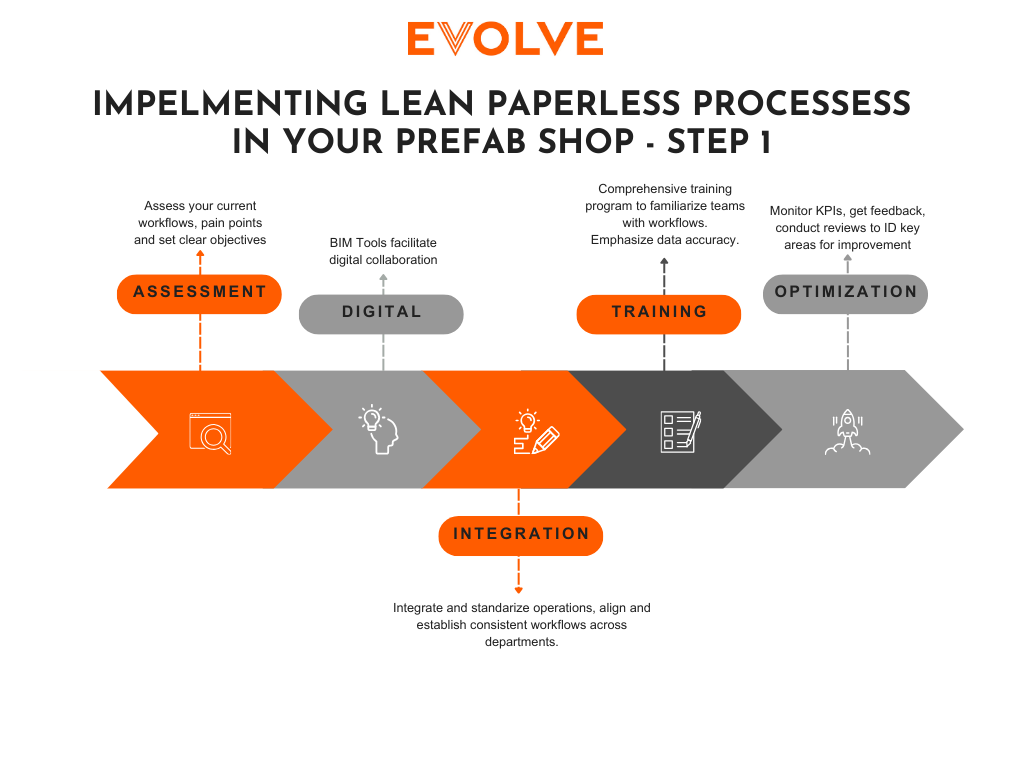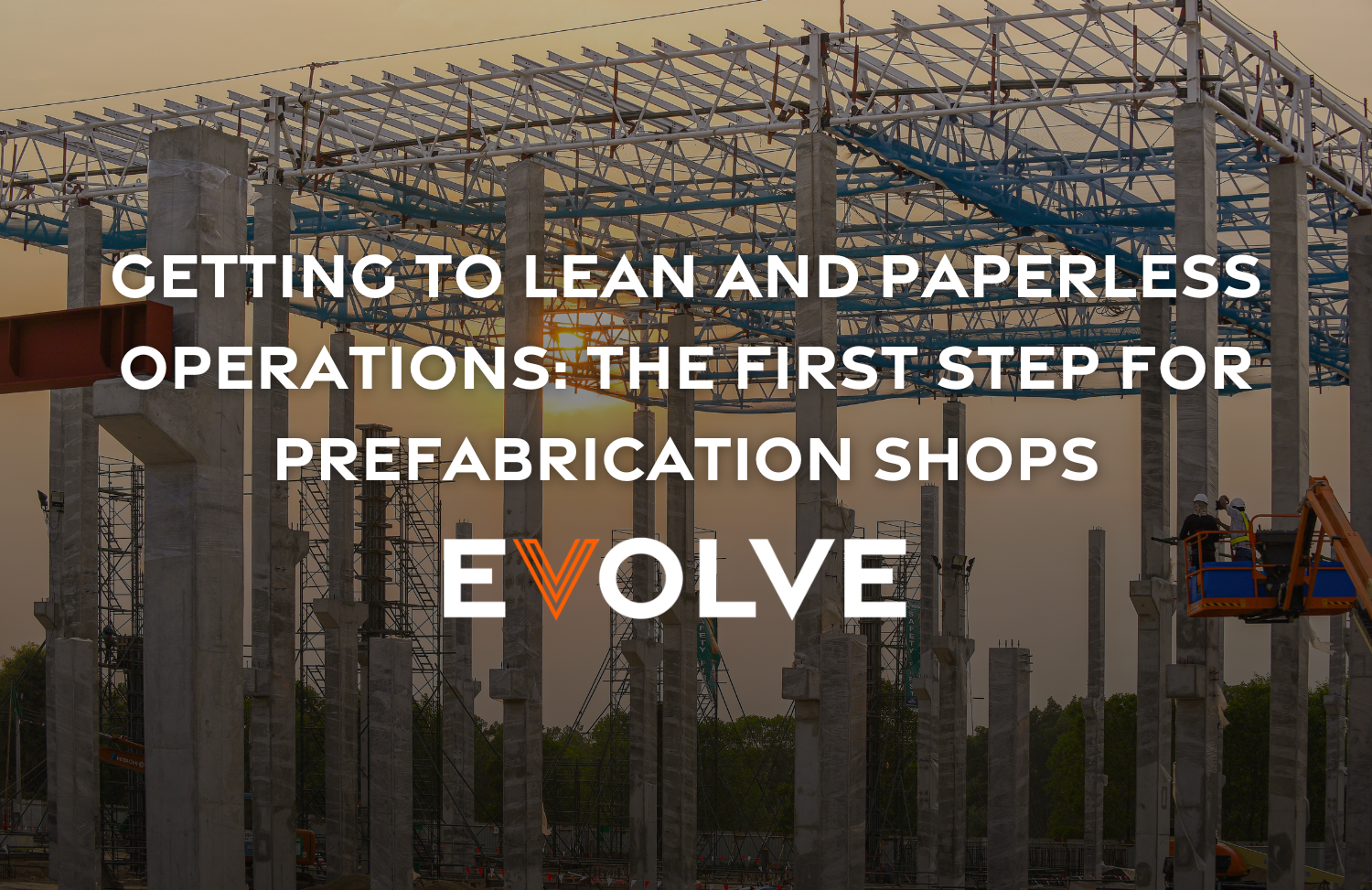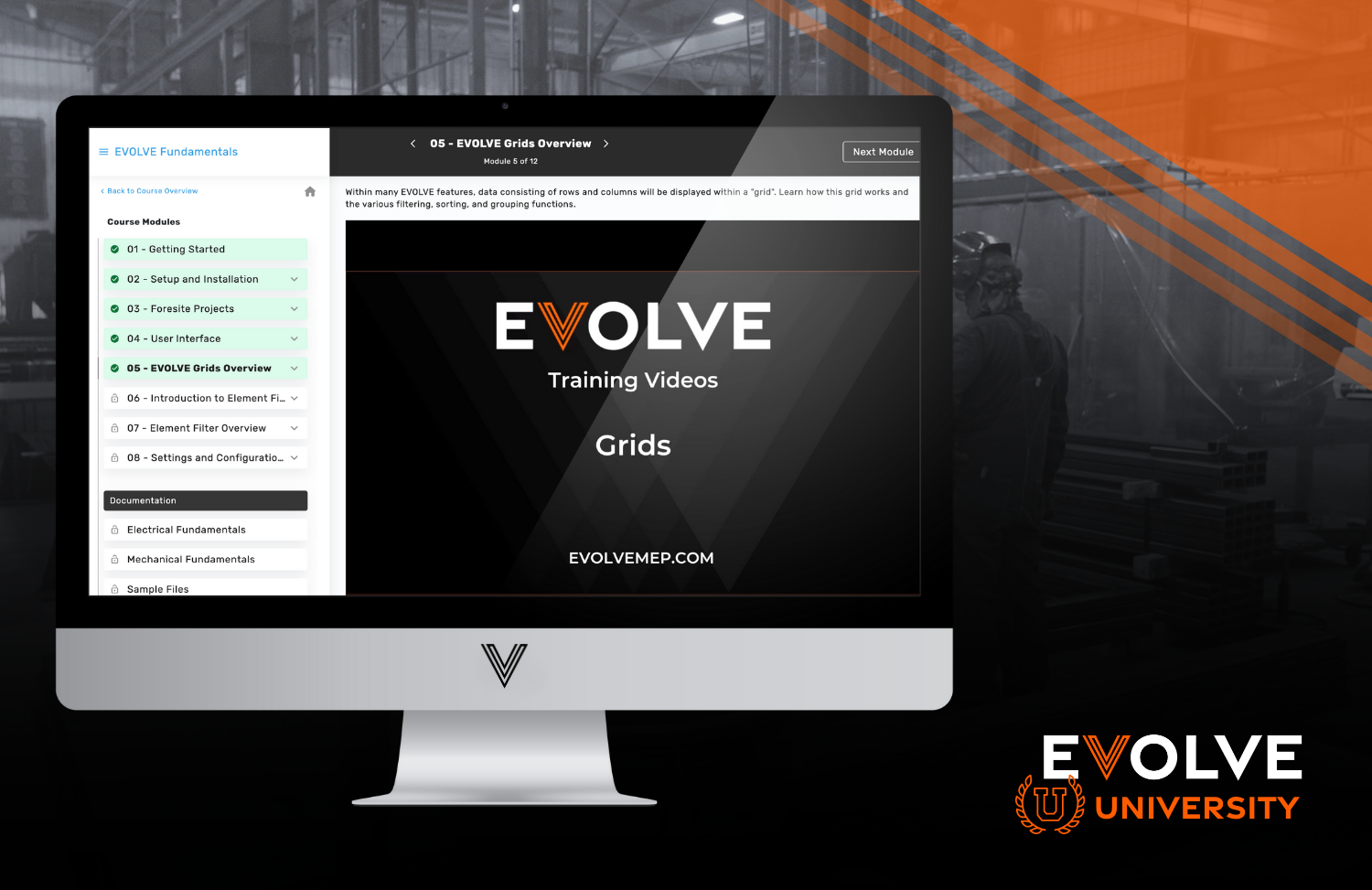Prefabrication has emerged as a game-changer, offering efficiency, cost-effectiveness, and quality control. Many prefabrication shops are charting a course to transition their operations to lean and paperless processes. By streamlining processes and reducing waste, prefab shops can optimize their productivity and stay competitive in a rapidly evolving industry.
The first step towards achieving lean and paperless operations involves a fundamental shift in mindset and the adoption of digital tools. Here’s a breakdown of how prefabrication shops can initiate this transformational journey with a paperless destination in mind.
 Assessment and Planning:
Assessment and Planning:Before starting your journey toward paperless processes, it’s crucial for prefabrication shops to assess their current workflows, identify pain points, and set clear objectives. This initial step lays the foundation for a successful transition to lean and paperless operations. Shop owners and managers should conduct thorough evaluations of their processes, from design and procurement to fabrication and delivery. By understanding where inefficiencies lie and what bottlenecks exist, they can pinpoint areas ripe for improvement.
Investment in Digital Solutions:
Once the assessment phase is complete, prefabrication shops can move on to investing in digital solutions tailored to their specific needs. This could include software for project management, BIM tools, and digital collaboration platforms like EVOLVE and EVOLVE Shop. These technologies not only streamline communication and document management but also facilitate real-time tracking of project progress and inventory management. By digitizing tasks that were previously paper-based, such as work orders, shops can reduce errors, minimize paperwork, and improve overall efficiency.
Employee Training and Buy-In:
The journey towards lean and paperless operations requires buy-in from all levels of the organization. To ensure successful adoption, prefabrication shops must invest in comprehensive training programs to familiarize employees with new digital tools and workflows. Training sessions should focus on the benefits of the transition, emphasize the importance of data accuracy, and provide hands-on experience with the new systems. By empowering employees to embrace change and adapt to new technologies, shops can cultivate a culture of continuous improvement and innovation.
Integration and Standardization:
In order to maximize the effectiveness of digital solutions, prefabrication shops should strive for integration and standardization across their operations. This involves aligning processes, establishing consistent workflows, and integrating disparate systems to create a seamless digital ecosystem. By standardizing procedures and data formats, shops can eliminate redundancies and ensure that information flows smoothly throughout the organization. This holistic approach not only enhances efficiency but also facilitates data-driven decision-making and performance analysis.
Continuous Evaluation and Optimization:
Lean and paperless operations is an ongoing journey with non-static goals that requires continuous evaluation and optimization. Prefabrication shops should regularly monitor key performance indicators (KPIs), solicit feedback from employees, and conduct periodic reviews to identify areas for further improvement. By embracing a culture of continuous learning and adaptation, shops can stay ahead of the curve and remain competitive in an increasingly dynamic industry landscape.





